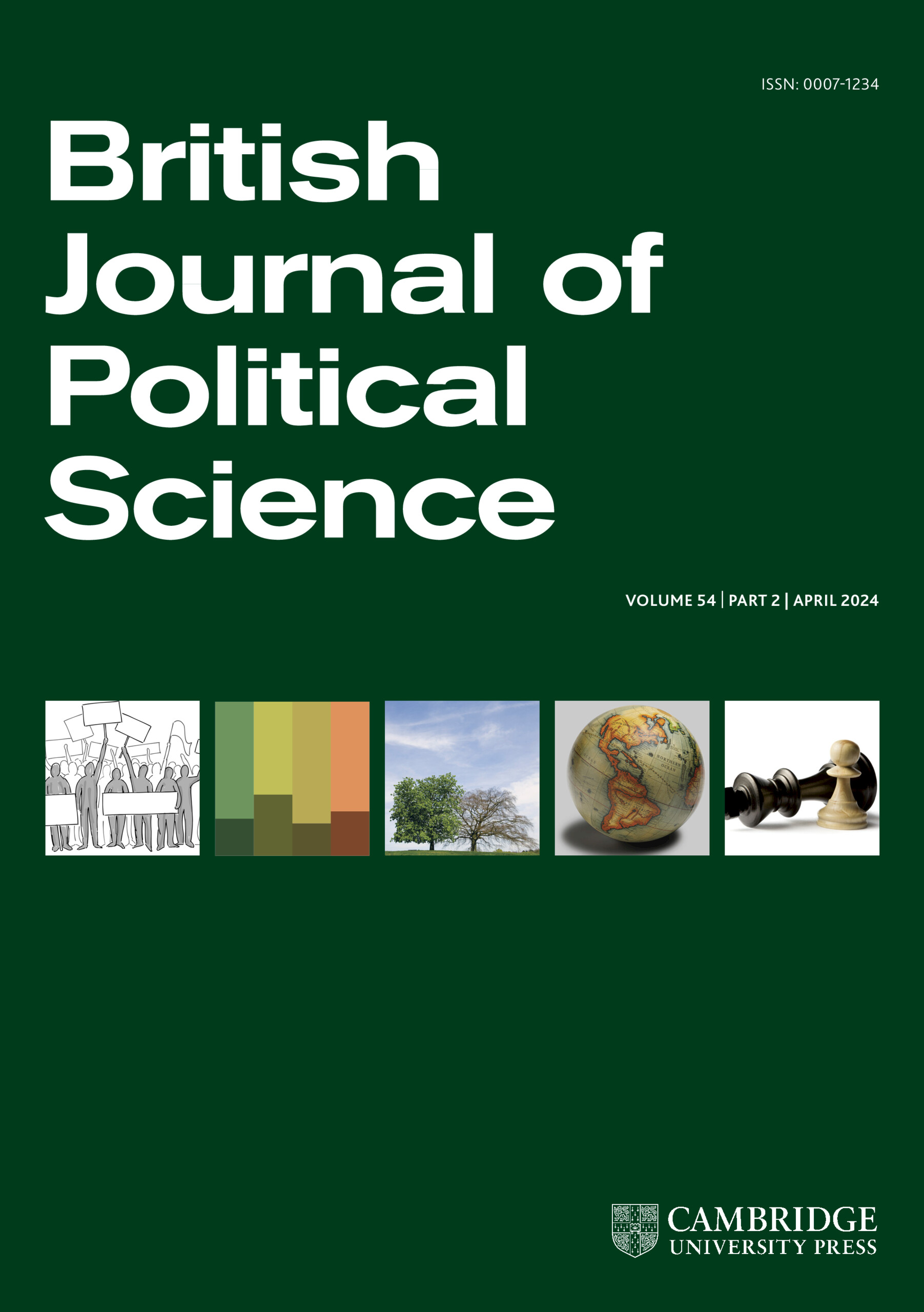When Do Citizens Consider Political Parties Legitimate?
IF 4.6
1区 社会学
Q1 POLITICAL SCIENCE
引用次数: 0
Abstract
Abstract Research on negative partisanship and affective polarization shows that wholesale rejections of individual parties are a common and growing phenomenon. This article offers a novel perspective on assessments of parties by considering citizens' legitimacy perceptions of political parties as institutional players. Combining research on political parties and public opinion, I develop a theoretical framework that explains how parties' characteristics shape their perception as legitimate institutional players. I argue that governing experience, age, ideology, and democratic behaviour provide informational cues to citizens about how democratically dangerous a party is. To test my argument, I fielded a cross-sectional survey in seven West European countries and a large-scale survey experiment. The results consistently show that citizens use party-level cues such as ideological moderation and democratic behaviour to form party legitimacy perceptions. The findings have important public opinion implications for political parties and their institutional role in democracies.公民何时认为政党合法?
对消极党派关系和情感两极分化的研究表明,个别政党的大规模拒绝是一种普遍且日益增长的现象。本文通过考虑公民对政党作为制度参与者的合法性认知,为政党评估提供了一个新颖的视角。结合对政党和公众舆论的研究,我开发了一个理论框架来解释政党的特征如何塑造他们作为合法制度参与者的看法。我认为,执政经验、年龄、意识形态和民主行为为公民提供了信息线索,让他们知道一个政党在民主方面有多危险。为了验证我的观点,我在七个西欧国家进行了横断面调查,并进行了大规模的调查实验。结果一致表明,公民使用政党层面的线索,如意识形态温和和民主行为,来形成党的合法性认知。这些发现对政党及其在民主制度中的制度作用具有重要的民意意义。
本文章由计算机程序翻译,如有差异,请以英文原文为准。
求助全文
约1分钟内获得全文
求助全文
来源期刊

British Journal of Political Science
POLITICAL SCIENCE-
CiteScore
8.70
自引率
4.00%
发文量
64
期刊介绍:
The British Journal of Political Science is a broadly based journal aiming to cover developments across a wide range of countries and specialisms. Contributions are drawn from all fields of political science (including political theory, political behaviour, public policy and international relations), and articles from scholars in related disciplines (sociology, social psychology, economics and philosophy) appear frequently. With a reputation established over nearly 40 years of publication, the British Journal of Political Science is widely recognised as one of the premier journals in its field.
 求助内容:
求助内容: 应助结果提醒方式:
应助结果提醒方式:


